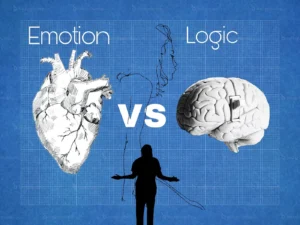Many of us think we have our finances under control, but there are hidden holes—financial blind spots—that can quietly ruin our wealth in the long run. People often overlook these areas, such as poor budgeting, uncontrolled contributions, inadequate insurance, or unrealistic retirement planning. If you want a healthy financial future, you need to fix your financial blind spots. In today’s fast-paced economy, ignoring these issues is more dangerous than ever. A small mistake now could cost you dearly tomorrow.
This article will help you uncover financial areas you may not be aware of and show you how to address them. By paying attention and making an effort, you will gain more control over your money and get closer to your goals.
What are Financial Blind Spots?
Financial blind spots are aspects of your finances that you don’t see, understand, or pay enough attention to. Even if you think you know a lot about your finances, you may have these blind spots. Some common blind spots include not accounting for inflation when setting savings goals, not being aware of your living expenses, ignoring high-interest debt, or not having a will or emergency fund. Blind spots are harmful because they often remain hidden until something bad happens. The first step to addressing them is to realize that everyone has them, even those who are good with money.
Track Your Spending:
Not understanding where your money is going is one of the biggest financial blind spots. People often don’t realize how much they’re spending each day on things like coffee, online shopping, takeout, or entertainment. Over time, these small amounts can add up and throw your budget into disarray. One way to fix this is to use an app or spreadsheet to track your spending. By tracking your spending in real time, you’ll gain more insight into your spending and uncover expenses you didn’t know you were spending. Once you know where your money is going, you can make changes that align with your goals.
Review and Adjust Your Budget Regularly:
You can’t just create a budget once and forget about it. You need to update your budget regularly to keep up with changes in your life. One thing people often overlook is sticking to an old budget because it doesn’t fit their current income, expenses, or goals. Reviewing your budget monthly or quarterly allows you to make adjustments as your income increases, you change jobs, or your lifestyle improves. Your budget should change as your life changes. If you don’t change your budget, you’ll get stuck in a pattern that may no longer work for you. Keep an open mind and be realistic when making a plan.
Breaking Out of a Financial Rut:
Many people have “financial ruts,” like unused subscriptions, forgotten bills, or insurance that covers the same thing. These small expenses slowly add up and keep you from focusing on the important things. Cancel services when you no longer need them. Consolidate accounts if possible. And review your insurance needs regularly. Getting your finances in order can make things easier and give you more freedom to make smarter decisions. When your finances are in order, you’re more likely to find and fix hidden holes in the mess.
Check and Improve Your Credit Score:
Many people don’t pay attention to their credit score until they need to borrow money, rent an apartment, or look for a job. A blind spot in your credit score can lead to increased interest rates or missed opportunities to earn money. Use free tools to regularly check your credit score and correct any errors on your report. Pay your bills on time, pay off your debts, and maintain good credit utilization to improve your credit profile. A good credit score can give you more freedom and confidence when making important decisions.
Prepare for Emergencies:
Many people fail to account for unexpected events, such as medical bills, job loss, or car repairs. This lack of planning is a common blind spot that can derail even the most carefully thought-out budget. Your emergency reserve is like a safety net, enough to cover three to six months of living expenses. Start small and build it up gradually. Even saving just $500 can help you avoid a high-interest loan in the event of an emergency. Having an emergency plan is not a bad thing; it’s proactive and empowering.
Preparing for Retirement:
It’s dangerous to think that retirement is a long way off and not worry about it. When it comes to getting rich through compound interest, time is your friend. The sooner you put money into your retirement account, the easier it will be to achieve your goals. Even small contributions now can pay off big down the road. Review your retirement plan and adjust your investment amounts as your salary increases, and don’t rely solely on government benefits. Planning early for retirement and staying consistent are essential for your long-term financial health.
Dealing with Emotional Spending:
People often spend money on things they don’t need because of habits or triggers, which is an emotional blind spot. Shopping for stress relief or entertainment can slowly build into unnecessary debt. To uncover emotional spending patterns, be honest with yourself. Keep track of what you buy and think about why you buy it. Learning to pause for a moment when making impulse purchases and finding better ways to manage stress can help you break this expensive habit. Emotional clarity is often the first step toward financial self-discipline.
Seek Professional Financial Advice:
Many people think that only the wealthy can afford a financial advisor, but that’s not true. What many people don’t realize is that making complex financial decisions on your own can save you time and money if you get expert guidance. A financial expert can help you develop a comprehensive plan to maximize your investments and uncover risks you may not be aware of. If you can’t hire a personal advisor, seek out free or low-cost services like nonprofit credit counseling or online financial planning tools. A second opinion can help you see things in a new light and avoid mistakes.
Build Financial Awareness Step by Step:
You can’t fix your financial blind spots once; you need to be financially aware for your entire life. Keep learning about money, reevaluate your goals regularly, and adjust your plan as needed. Just like your physical and mental health, your financial health needs constant attention. Keep an open mind, be open to change, welcome progress, and don’t be afraid to ask questions or apologize. The more you understand, the better you can determine how to plan for your financial future.
Conclusion:
Addressing your financial blind spots can change the way you think about money and help you find the right path to financial stability. The first step is recognizing that there’s a gap and then taking action. Every step you take, whether it’s tracking your spending, saving for emergencies, or seeking advice, counts. Having a clear picture of your financial situation can help you make better choices, reduce stress, and give you more confidence in the future. It’s normal to have blind spots, but you don’t have to ignore them. The sooner you identify problems, the better prepared you’ll be. Financial independence depends not only on how much money you make but also on how you manage your assets.
FAQs:
1. What is a financial blind spot?
Financial blind spots are the ways you manage your finances that you often overlook or don’t understand, such as forgotten subscriptions, outdated budgets, or insufficient savings.
2. How do I find parts of my finances that I’m not seeing?
Monitor your spending, check your credit score, and review your budget regularly. Consult financial tools or seek advice from an advisor to spot patterns that you may have missed.
3. Do you need to hire a financial advisor?
A financial advisor can give you professional advice, identify risks, and help you develop a sound strategy, but you don’t have to hire one. Many free or low-cost resources can help.
4. How much should I save in my emergency fund?
Try to save enough to cover three to six months of living expenses. But even $500 will go a long way when times get tough.
5. How can I stop spending money when I’m feeling down?
Keep a log of your purchases to figure out why you want to buy something. Don’t make impulse purchases all at once. Instead, try exercising or keeping a journal to help you feel better.




